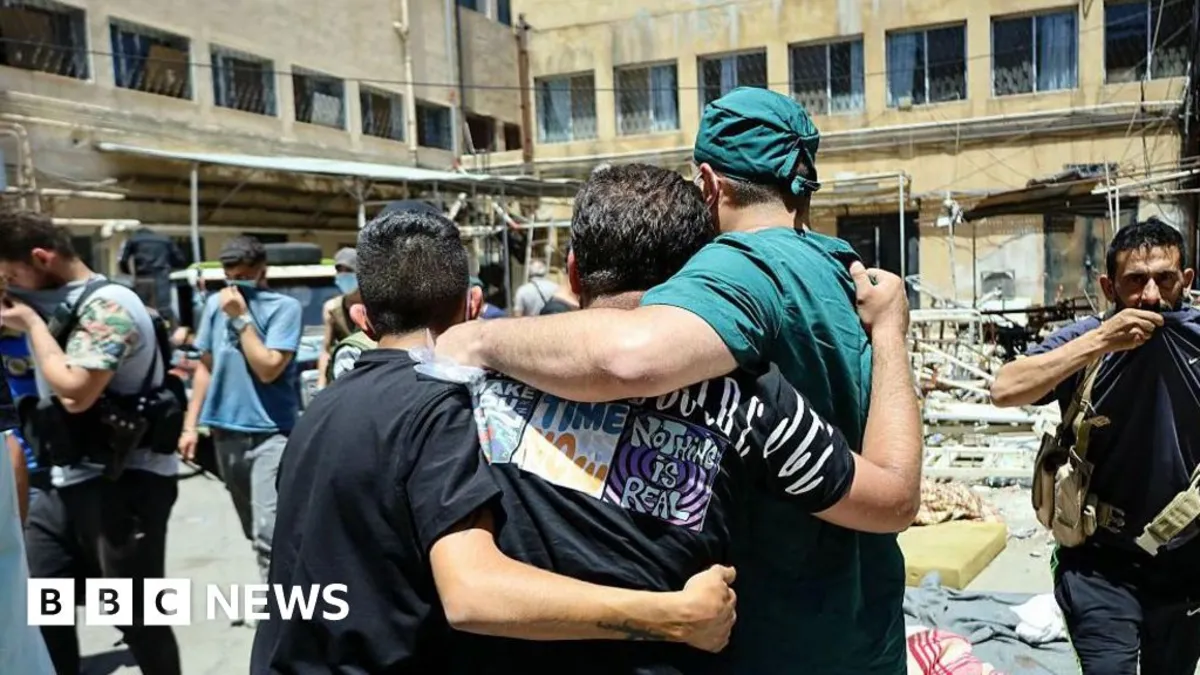
Over the past five days, Rima, a 45-year-old Druze woman, has witnessed horrific scenes in her hometown of Suweida, located in southern Syria. Having lived there her entire life, Rima never imagined that her once-peaceful community would transform into a battleground. In a phone interview with the BBC, Rima, who spoke under a pseudonym for her safety, described the harrowing conditions, stating, "There were bodies everywhere outside our building."
As violence escalated, Rima found herself trapped inside her home, anxiously awaiting the next horrifying event. “One of the worst feelings ever is to keep waiting for people to come into your house and decide whether we should live or die,” she recalled, her voice shaking with fear. The ongoing conflict has instilled a profound sense of abandonment among Rima and her neighbors, as the sounds of bullets and artillery shells reverberate outside their doors.
The recent outbreak of violence in Suweida can be traced back to long-standing tensions between the Druze community and Bedouin tribes. These tensions erupted into deadly clashes on Sunday following the abduction of a Druze merchant on the highway to the capital, Damascus. The situation worsened as fighting spread throughout the southern province, prompting the government of interim President Ahmed al-Sharaa to announce a deployment of security forces aimed at restoring order.
Since the fall of Bashar al-Assad, many local Druze leaders have opposed the presence of government security forces in Suweida. The situation escalated further when government forces began operations on Tuesday, leading to accusations of violence against both Druze fighters and civilians. This prompted the Israeli military to intervene with airstrikes, claiming they were aimed at protecting the Druze population.
As Rima tried to grasp the unfolding situation, she faced challenges such as a lack of internet and power, making it difficult to stay informed. The view from her window was grim: slaughtered bodies and burned buildings littered her neighborhood. According to the Syrian Observatory for Human Rights, at least 594 individuals have been reported killed since Sunday, including 154 Druze civilians, with many victims allegedly summarily executed by government forces.
Another local resident, Nayef, shared his traumatic experiences, stating, “We are collecting bodies from the streets. We found bodies left outside houses for two or three days.” Despite being a government employee, Nayef expressed his disbelief at the brutality displayed by government forces, who he claimed looted and burned homes while indiscriminately firing on unarmed civilians.
Video footage circulating on social media supports Nayef's claims, showing armed men in camouflage firing live rounds at unarmed residents. The UN human rights office reported that armed men affiliated with the government deliberately opened fire during family gatherings, resulting in numerous casualties.
As bullets continued to rain down, residents of Suweida were left wondering when help would arrive, but help never came. Rima recounted witnessing a horrifying incident where security forces shot her neighbor in front of his mother. "Is this the army and security forces who were supposed to come and protect us?" she questioned, emphasizing the tragic loss of life among young, unarmed civilians.
Testimonies from residents indicate that many of the attackers were Islamist fighters, who openly declared their intentions against the Druze community. A local woman reported hearing them shout “Allahu Akbar” while labeling Druze individuals as infidels. Disturbingly, some fighters posted videos online humiliating Druze men, including acts such as shaving off moustaches, which hold significant cultural meaning.
In a televised address, President Sharaa vowed to hold those responsible for the violence accountable, asserting that the protection of the Druze community is a priority. He accused outlaw groups of escalating tensions and stated that their leaders have resisted dialogue for months. However, the situation remains dire as the people of Suweida continue to suffer amidst chaos and uncertainty.